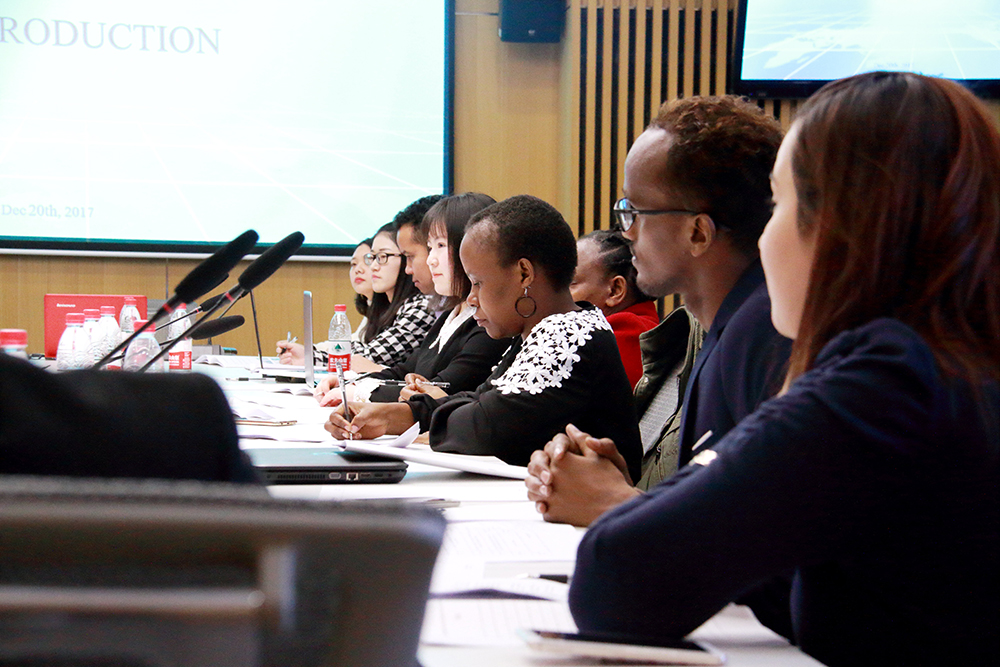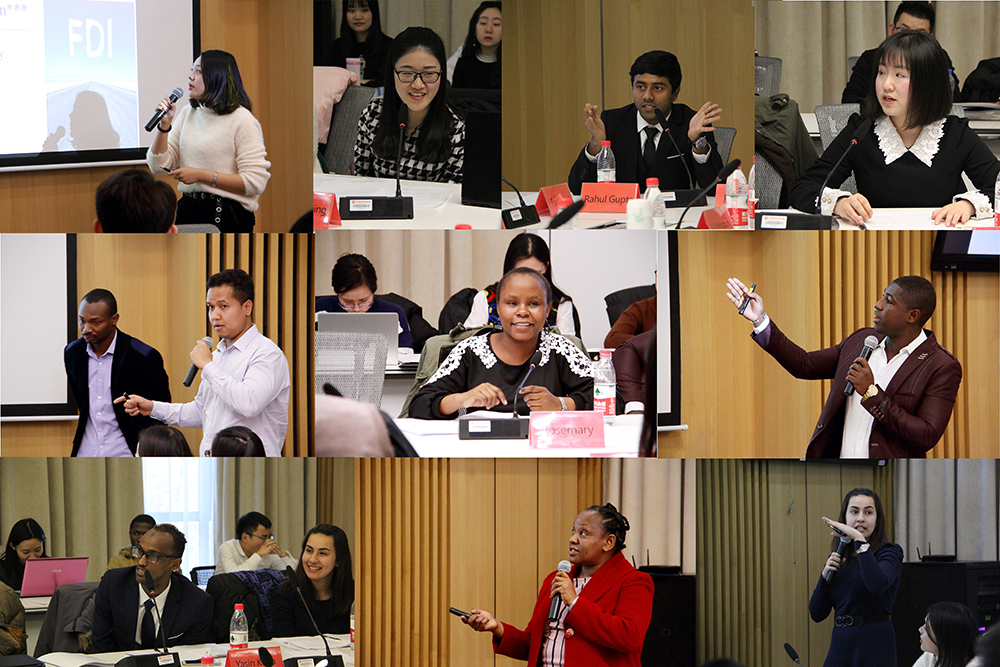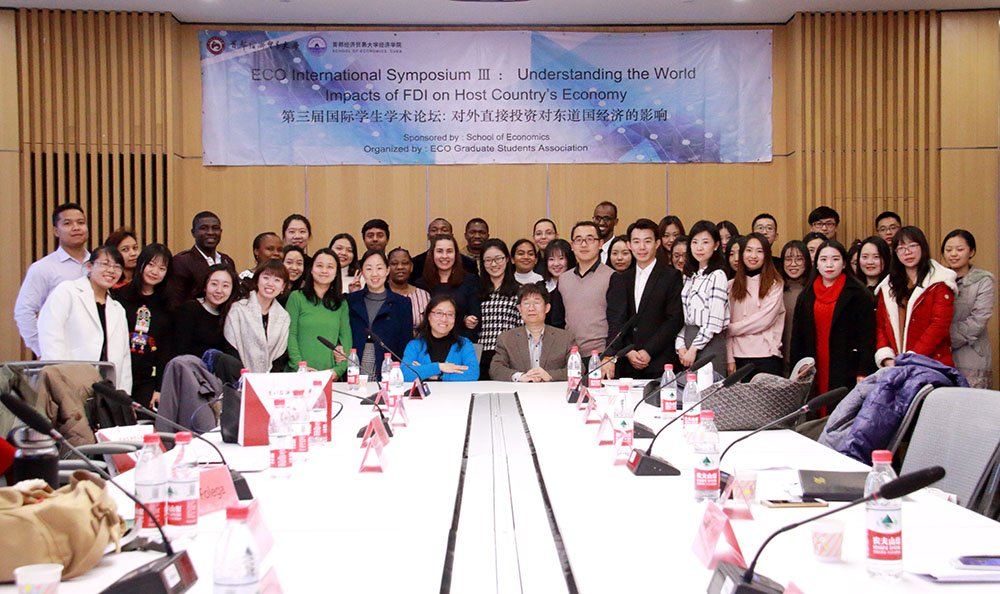3rd International Symposium : Global Impacts of FDI on Host Country's Economy
On the afternoon of December 20, the 3rd International Student Academic Symposium, sponsored by the School of Economics, kicked off in Tianlang Hall, Boyuan Buliding. The theme of this symposium is "Global Impacts of Foreign Direct Investment (FDI) on Host Country's Economy." Six postgraduates and doctoral students from Tajikistan, Mali, Togo, Madagascar, Tanzania and China delivered keynote speeches, and another five students from home and aboard made speeches as commentators.

First, Lang Lihua, Dean of the School of Economics, addressed the forum. She pointed out that the international symposium not only provided an academic platform for both Chinese and foreign students, but also enhanced their ability to participate in international exchanges. FDI is an important impetus for the development of the world economy. Discussion of FDI’s impact on world economy is of great academic value and practical significance. 2018 marks the 40th anniversary of China's reform and opening up. The School of Economics is setting up a China-EU Center for Economic Research with the University of Rome (Tor Vergata) in Italy. In this context, Lang hopes that students can dig deeper in research, further enhance academic capabilities and develop international visions.

During the speech session, 11 speakers shared their researches on FDI. Chinese student Xu Chenchen conducted an emperical study on Crowding-in and Crowding-Out Effects of FDI based on the data of China's FDI in 1998-2008 and 2008-2015.Han Le from Madagascar and Frogar from Togo selected 16 countries from 138 countries to analyze the negative effects of FDI on economic growth and explore the underlying reasons. Robb from Tanzania participated in the symposium for the third time. She combined empirical analysis and typical facts, analyzing the FDI’s impact on Tanzania. She also proposed a method to maximize the potential benefits of FDI. Chuck from Mali analyzed the positive and negative impacts of FDI on the Malian economy respectively, arguing that FDI increased productivity and lowered the costs, but brought about unemployment at the same time. Jiang Shan from Tajikistan made the last speech in which she introduced the national conditions of Tajikistan in its opening-up and emphasized the important status and role of Chinese FDI in Tajikistan. She believes that it is imperative for developing countries to conduct mutual exchanges and cooperation. She also thought that increasing foreign investment is conducive to the development of national economy on the basis of trust. During the discussion, commentators and tutors made comments on the theoretical basis and research methods of the speechers and offered suggestions. The active exchanges triggered the deep thinking of teachers and students on the impact of FDI .
The symposium was sponsored by the School of Economics and organized by the Graduate School of Economics. There were 13 contributions to the symposium. After tutors' discussion and screening, and thesis defenses on the spot, 5 keynote speeches and 5 comment speeches were finally decided. The School of Economics paired every student with one tutor for one-on-one guidance, and invited nine professional teachers to comment on site. The efforts guaranteed the academic level of the symposium.
The School of Economics set up the series of activities with the theme of "Understanding the World" in 2016, which mainly relies on the two platforms of "International Symposium" and "Academic Roundtable" to organize global academic activities. At present, the series of activities have been successfully held for seven times, gathering a number of scholars, teachers, students from cooperative schools in the United States, Britain, France, Italy, etc. They had discussion and shared ideas on topics such as agricultural development of the world, internationalization of RMB, economic globalization and FDI, which effectively boosted the School of Economics’ international profile.

